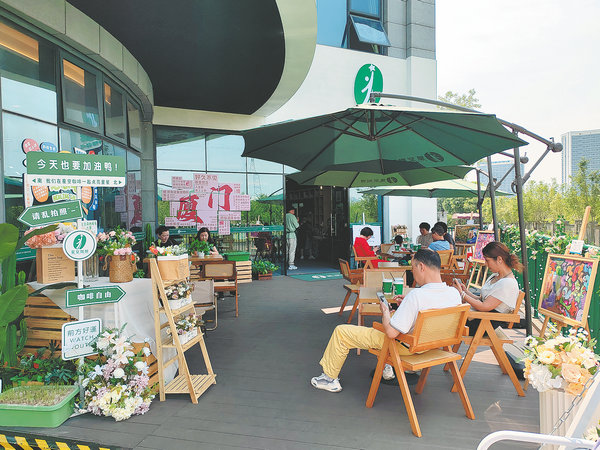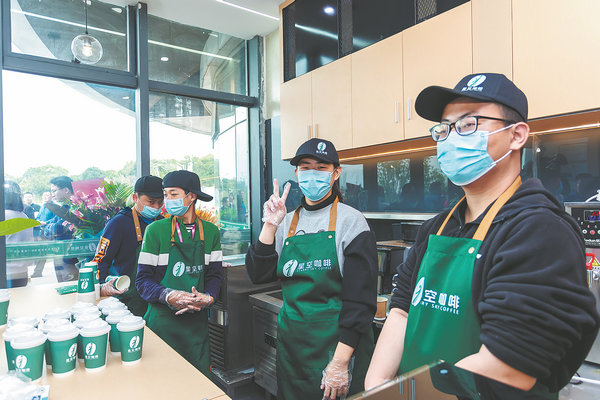
The Starry Sky Cafe lies within a corporate zone in Xiamen's Jimei district, and is frequented by office workers and residents living nearby. [Photo provided to China Daily]
"People with autism live in their own worlds, but when they are making coffee, they pay a lot of attention to measurements and ratios, so the quality is excellent, but it can take them a little longer," Xu says.
This cafe is the prototype for Starry Sky Cafes to come, with a second location in Xiamen now in the planning stage.
According to Xu, cafes like this can be sustainable in the long run, provided they receive support from the government and from socially responsible corporations.
Their success is also linked to the general environment of cities. In Xiamen, for instance, residents are accustomed to inclusive practices, and are willing to support the cause in their own way.

The cafe employs five baristas with autism, under the daily supervision of a manager and occasional participation of the employees' parents. [Photo provided to China Daily]
To help people with disabilities find jobs, Xiamen has introduced a range of support measures, including creating incentive mechanisms for companies, establishing district-level and subdistrict-level offices to provide training and employment support, as well as frequent vocational skills assessments, job counseling, and job fairs.
In July, the Xiamen federation hosted another coffee-making training session for individuals with autism, to provide them with the skills they need to work at such cafes.
"The Starry Sky Cafe aims to provide young adults with autism a good job opportunity, enhance their sense of self-worth, and improve their prospects and those of their families through work, so that they are able to achieve personal development while integrating into society," Chen says.